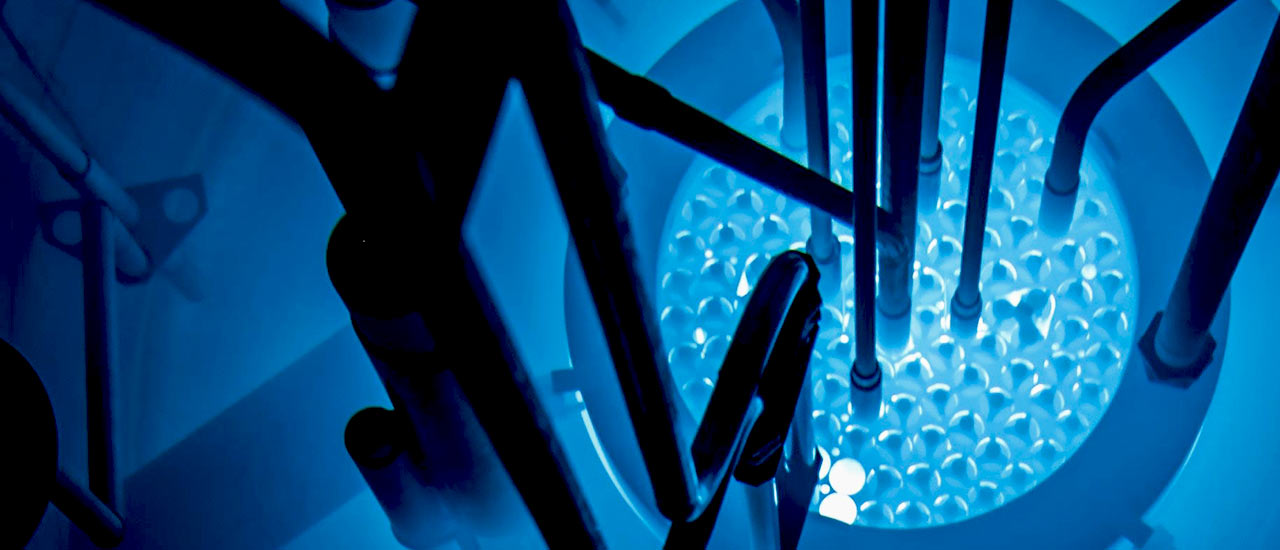Faculty
Faculty teaching online courses in our Radiation Health Physics (RHP) program are renowned in their field. Some of their research projects include Space Nuclear Power Sources, Medical Isotopes Production and Environmental Pathway Analysis.
Lily Ranjbar, Ph.D.
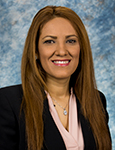 Director of online programs and senior instructor
Director of online programs and senior instructor
Ph.D. in Radiation Health Physics (2016), Oregon State University
Dr. Ranjbar came to Oregon State with a master's in nuclear physics from Isfahan University of Technology in Iran. She is also collaborating with the Radiation Detection Group on the development of radioxenon detection systems for nuclear explosion monitoring.
Abi T. Farsoni, Ph.D.
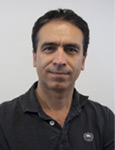 Associate professor
Associate professor
Ph.D. in Radiation Health Physics (2006), Oregon State University
Working in the Advanced Nuclear Instrumentation Development Laboratory at the Radiation Center, Abi Farsoni had made advances in radiation detection technology and devices.
Most recently he and his team have developed a prototype for a portable, low-cost, wireless radiation detector capable of spectroscopy. It has potential applications in nuclear emergency response, defense, and home safety.
Abi's research interests include development of advanced radiation detectors for imaging and spectroscopy, designing compact and high-speed digital pulse processors and associated firmwares (in FPGA) for real-time radiation measurement and gamma ray imaging, and development of multilayer scintillation (phoswich) detectors for homeland security.
Abi enjoys traveling around the world and camping. He has been at Oregon State University since 2006.
Kathryn A. Higley, Ph.D.
Professor
Ph.D. in Radiological Health Sciences (1994), Colorado State University
Dr. Higley's fields of interest include environmental transport and fate of radionuclides, radiochemistry, radiation dose assessment, neutron activation analysis, nuclear emergency response and environmental regulations.
Prior to OSU, Kathryn served as Reactor Supervisor for the Reed College TRIGA reactor. She has held research positions at three research reactors including Reed College, Washington State University, and Oregon State University. She spent 14 years with Battelle, Pacific Northwest Laboratories as an environmental health physicist at the Hanford Nuclear Reservation.
Camille Palmer, Ph.D.
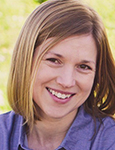 Associate professor
Associate professor
Ph.D. in Nuclear and Radiological Engineering (2003), University of Cincinnati
Dr. Palmer’s professional interests emphasize international nuclear security and nonproliferation, where she closely collaborates with the Oregon State School of Public Policy.
Since 2015, she has served as the faculty advisor for the Oregon State student chapter of the Institute for Nuclear Material Management (INMM). Her current research includes investigating robotic applications for nuclear safeguards, introducing new analytical techniques for nuclear forensics, and nuclear forensic signature development.
Dr. Palmer began her career performing nuclear weapons effects simulations to quantify test parameters to comply with Air Force nuclear survivability requirements (Northrop Grumman Mission Systems, 2003-2006). This position subsequently led her to Los Alamos National Lab where she has served two different stints.
In 2006-2007 she was a Technical Staff Member in the Thermonuclear Applications Group (X-2) supporting the Air Force Team’s predictive capabilities for weapon design. As a part of the Stockpile Stewardship effort, she contributed to weapon code validation and verification simulating the secondary stage of the W-78. Returning in 2011, Dr. Palmer used her experience in the National Technical Nuclear Forensics team (XTD-4) analyzing post-detonation signatures of foreign and improvised nuclear devices.
In her time in X-Division she was mentored by physicists with experience performing nuclear weapons tests, and was trained as a student of the Theoretical Institute for Thermonuclear and Nuclear Studies (TITANS). She is a current member of the Institute of Nuclear Materials Management (INMM), the American Nuclear Society (ANS) and the Center for Strategic & International Studies, Project on Nuclear Issues (PONI).
Alena Paulenova, Ph.D.
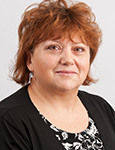 Professor of radiochemistry
Professor of radiochemistry
Ph.D. in Physical Chemistry (1985), Kharkov State University, Moscow
Dr. Paulenova’s research interest is in radioanalytical and separation chemistry of actinides and important fission products.
These interests also include the speciation of these metals in aqueous and organic solutions; complexation with man-made and natural ligands affecting their behavior in separation processes and mobility in natural bio-geochemical systems; effects of radiolysis, hydrolysis and redox interactions in these systems, including development of new separation materials and methods for medical and environmental applications (radiochemical sensors and waste treatment).
Dr. Paulenova is also an adjunct professor in the OSU Department of Chemistry.
Steven Reese, Ph.D.
 Director of OSU Radiation Center and associate professor
Director of OSU Radiation Center and associate professor
Ph.D. in Radiological Health Sciences (1997), Colorado State University
Dr. Reese’s fields of interest include radiation protection, activation analysis, radiation shielding, neutron radiography and dosimetry.
Prior to his current role, Dr. Reese served in the external dosimetry section (1991-1993), Battelle Pacific Northwest Laboratory; and OSU Radiation Safety Office (1997-1998), reactor administrator (1998 -2005), OSU Radiation Center. He is a member of the Health Physics Society, American Board of Health Physicists, and American Nuclear Society.
Haori Yang, Ph.D.
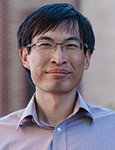 Associate professor
Associate professor
Ph.D. in Nuclear Engineering and Radiological Sciences (2009), University of Michigan at Ann Arbor
Haori Yang’s research interests include non-destructive interrogation, innovative radiation sensors, and general applications of radiation detection techniques. He is developing a muon tomography imaging system for monitoring spent nuclear fuel assemblies inside dry storage casks.
He is also investigating an interrogation technique based on photon-induced fission to detect concealed special nuclear material. Yang is researching applications of laser technologies for material characterization in post-irradiation examination, nuclear safeguards and nuclear forensics.
In addition, he is investigating low-cost, high-performance radiation detection with nanostructured radiation sensors and spintronics devices as alternatives to traditional detectors. The revolutionary improvement of radiation detection has significant impact in areas beyond nuclear material detection, including medical imaging, high-energy physics, and nondestructive testing.
Important dates
These are the start dates for OSU’s next two terms. However, this program only admits for fall term.
See our academic calendar for our full quarter term schedule.
Degree quick facts
* Oregon State University is on a quarter-term system. There are four quarters each year and classes are 11 weeks long. This program's 45 quarter credits are equal to 30 semester credits.
† Based on current tuition rates. No additional charge for nonresident students. Does not include course materials and associated fees and expenses.
‡ You can complete all or nearly all requirements of this program online. View the curriculum.
Find application deadline
View required or recommended deadlines for your student type on our application deadlines page.
Ready to apply?
Once you've gathered the information you need to know before you apply to Oregon State University, take the next steps.

